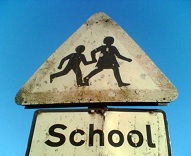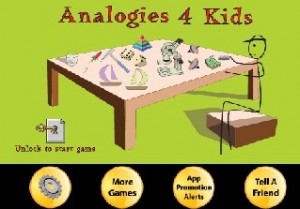Does summer vacation affect children’s overall academic performance? National Summer Learning Association argues that by 9th grade, two-thirds of the achievement gap between low and middle-income children is due to summer learning loss. I’ve been hearing these types of arguments forever and have pretty much accepted them as fact. In part because of this, my wife and I double down on the summer academics to make sure we are moving forward and not backward.
New Study Case Doubt on Theory
Paul T. von Hippel, an Associate Professor of Public Affairs at the University of Texas recently published a study that casts doubt on this assumption that summer break negatively impacts academic performance. This is important because there is a movement against summer vacation. Because there are social and economic reasons to preserve summer vacation, we certainly don’t want to change the system that we have unless there is a strong educational reason to do so.

Von Hippel came to this conclusion in different ways. First, he and his colleagues attempted to recreate the results from earlier studies on the impact of summer vacation. For example, Von Hippel attempted to recreate a prominent study from the 1980s which found that summer break hurt academic performance. But von Hippel was unable to replicate the results with modern exams. He found flaws in the original study methods that led him to question whether these studies had merit.
Von Hippel and his team also looked at studies on early learning. They found that nearly all of these studies found that “gaps” in academic skills are not something children develop after they start having long summer breaks. Instead, the early learning research indicates that discrepancies in academic skills are normally formed before kids start going to school. According to von Hippel this directly undermines the assumption that gaps in skills are the result of summer learning loss.
Finally, von Hippel notes that many researchers insist that the real problem is what goes on at the schools themselves during the school year. According to von Hippel, this school of thought casts further doubt on the summer learning theory. If academic achievement gaps are the result of what happens during the school year, then where does the impact of summer break fit into the picture?
Von Hippel and his team conducted a comprehensive review of all these apparently contradictory data sources on the impact of summer vacation on academic achievement. They concluded that the various studies themselves were accurate and reliable.
The Beginning School Study
Von Hippel first looks at the Beginning School Study. This famous study which began in 1982 compared the test scores of 838 students who attended high-poverty and low-poverty schools in our own Baltimore, Maryland. For eight years, the test group of children was observed and tested from 1st grade to 8th grade. The study found that first graders in high-poverty schools performed worse on the test than their counterparts who attended low-poverty schools. The study also found that the achievement gap more than tripled by eighth grade. Significantly, the results of this study indicated that the skills gap got bigger during the summer months as opposed to during the school year.
However, von Hippel doubts that these results would be the same for children today. He notes that the study is over thirty years old, meaning the children are now in their 40s. Von Hippel also suggests that the results of this study have been contradicted by more modern studies which suggest that there is no summer gap increase in academic performance between children in low-poverty and high-poverty schools.
Recent Studies on the Achievement Gap
Von Hippel references a federal study named Early Childhood Longitudinal Study, which looked at the 2010-11 kindergarten class. It looked at a sample of children in public and private schools throughout the United States. In this study, the achievement gap did not change significantly between kindergarten and second grade. The study definitively concluded that academic skills gaps do not increase more during summer vacation.
Another recent study referenced by von Hippel examined measures of academic progress test scores between the years 2008-2016. This test was administered in over 7,800 school districts throughout the country. It found that the academic achievement gap between high-poverty and low-poverty schools did not change significantly between kindergarten and 8th grade. The gap had only grown by about a third and did not grow significantly during the summer months compared to the school year.
Reasons for Contradictions Between Studies
Why does more recent data appear to contradict the conclusions of early research regarding the summer learning gap? Von Hippel believes it is because there have been significant changes in how student performances are tested and scored since the Baltimore study was conducted.
Much has changed in scoring methods since the 1980s. Test questions have become increasingly difficult, and modern scoring methods account for this. The Baltimore study utilized the old California Achievement Test which was based on a now obsolete scoring method known as Thurstone scaling. This scoring method has since been replaced by more accurate methods. According to von Hippel, this change in scoring methods changed how achievement gaps looked on the California Achievement Test. With Thurstone scaling, score gaps increased when children grew older. However, the gaps did not increase as children became older. Instead, gaps shrank.
The changes to the test also changed summer learning patterns. With respect to Thurstone scaling, high- and low-achieving students had larger achievement gaps during the summer months. However, the scores between these two sets of students converged when item response theory was used.
What is the Best Scoring Method for Tests?
Von Hippel argues that the “best” modern tests use “adaptive” methods and it is hard to dispute him. This means asking harder questions once students correctly answer questions, and easier questions when they give incorrect ones. This scoring method is used in undergraduate and graduate school entrance exams such as the SAT, GMAT, and GRE. Adaptive tests do not ask all students the same exact questions.
All of the modern studies that von Hippel and his team analyzed used adaptive scoring methods. However, these tests still generated contradictory results with respect to summer achievement gaps. The Early Childhood Longitudinal Study tests indicate no significant loss in summer learning. Children would only lose an average of two weeks of reading and math learning during their first summer vacation. However, during the second summer vacation, they lose two weeks of reading but slightly gain with respect to math. Other contemporary studies seem to show a more significant loss in summer learning. Von Hippel notes that it is difficult to explain why tests show different achievement gaps.
Von Hippel’s conclusion
Von Hippel concludes that it is more than likely that summer learning loss does not account for two-thirds of the achievement gap. He argues that the gaps in achievement do not significantly change between kindergarten and 8th grade. Von Hippel also concludes that we know much less about how summer affects reading achievement gaps than we realize.
However, he notes that almost every child learns more slowly during summer vacations than during the school year. This means that children who have low achievement can catch up with their peers. Summer learning programs provide an opportunity to lower gaps. Of course, summer programs are only effective if students regularly attend them.
Von Hippel also discusses two different school calendars that integrate summer learning. They are “year-round” and “extended-year.” “Year-round” school calendars spread the typical 170-180 day school year more evenly across the calendar year. There are shorter summer vacations, but longer breaks during other times of the year. Theoretically, this is done so that there is no difference in time between the amount learned and forgotten as well as the time spent in and out of school.
“Extended-year calendars” usually add a couple extra weeks of school during the summer, as well as a few Saturdays. This could total up to 210 school days in a year. Only fewer than 1 in 1,000 schools in the U.S. use this calendar, mostly prominently high-performing charter schools. Harvard economist Roland Fryer discovered that extended-year calendars improved math scores in historically low-performing public schools in cities such as Denver, Houston, and Chicago.
Von Hippel believes that the effectiveness of these summer learning programs is not relevant to the issue of summer learning loss. He also argues that these programs do not prevent gaps from widening during the summer. Rather, they help shrink gaps that have been there since a child enters kindergarten.
So what is the answer? I have no idea at this point. I have always thought summer vacation was incredibly precious but we should do away with it because of the compelling evidence that is hindering our children’s education. Now? I think we should get to the bottom of Van Hippel’s arguments with more study before we do anything rash. Because there is no sensible argument to take away summer vacation other than the studies that suggest deleterious effects on the learning process.



 Miller & Zois Kids Blog
Miller & Zois Kids Blog


